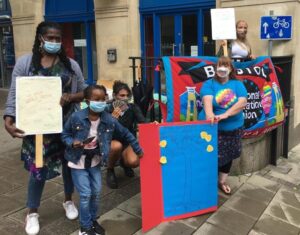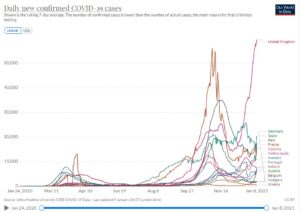Even before the call for a ‘new normal’ in the aftermath of the coronavirus crisis, the UK education system has been crying out for change.
The DfE has said that “No child should be disadvantaged by the COVID-19 outbreak”. But it is not the virus that has disadvantaged these children.
Education in the UK is class-based; headteachers in private schools have recognised the huge advantage that their students have over students in state-funded schools. Class sizes are so small in private schools that they haven’t had to introduce social distancing measures – they have carried on as they are. What is good enough for the elite and for those who can afford it should be good enough for everyone.
Teachers try to make their subject engaging and meaningful. However, the reality is that what is demanded of students is often seen as abstract and irrelevant.
As it stands, the education system is a one-size-fits-all model, with insufficient flexibility to meet the needs of individuals who do not fit the model. In secondary schools, the mind-numbing rules and rituals that students have to follow every day are just a preparation for a life of adherence to more rules and subjugation. ‘Student Voice’ is tokenistic: it is patronising and gives the impression that what students have to say will make a real difference to what happens in schools.
The introduction of the new-style GCSEs in 2015, with the first examinations taking place in 2017, saw an increase in anxiety and depression amongst school students, because of the increased emphasis on academic achievement. Most teachers believe that the focus on exams has become disproportionate to the overall well-being of student.
The cancellation of the GCSE (and A Level) examinations this year, because of the COVID-19 lockdown, meant that end-of-course outcomes of students rely solely on teacher assessment of evidence produced by students over the course of the year.
Adapting to the current crisis has shown what is possible. With more thought put into what students learn (and how they learn best), reflecting the real needs of communities locally and nationally, schools could become facilitators in organising learning, rather than providers. This change in emphasis could parallel socialist change in society.
Schools need to be more accountable to the communities they are there to serve: having elected headteachers will help to achieve this. The governing bodies of schools or the board of trustees of Multi-academy Trusts are a pale reflection of what could be achieved under direct control and management of schools by education workers, local authority representatives and representatives from the local community. The pay gap between the lowest and highest paid in the sector should be drastically reduced. This programme would make a real difference to the sector, opening up education to reflect the needs of society.
David Kaplan




